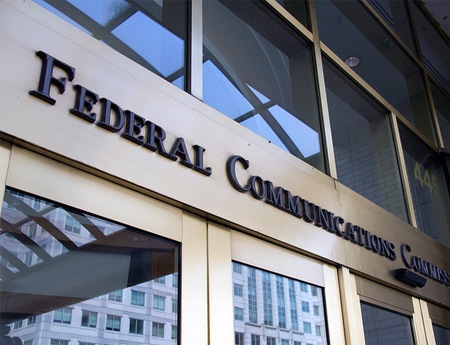Thune Introduces FCC Reauthorization Bill

The smarter way to stay on top of broadcasting and cable industry. Sign up below
You are now subscribed
Your newsletter sign-up was successful
Sen. John Thune (R-S.D.), chairman of the Senate Commerce Committee, has introduced his FCC reauthorization bill, which he signaled last week was in the works.
The FCC has not been reauthorized in almost a quarter century, and Thune said it was about time. Authorization bills establish, or reestablish as in this case, a federal agency, a chance to modify the terms under which it operates, and how funds may be spent.
“The technology and communications landscape has changed dramatically since Congress last passed an update for our nation’s telecommunications regulator more than 25 years ago,” said Thune. “Restarting the process of regular authorizations for the FCC will make the agency more accountable to the American people and ensure that the agency has the right tools to do its job.”
The bill would reauthorize the FCC for only two years, including funding for the spectrum auction.
“Like all federal agencies, Congress should go through the process of reauthorizing the FCC on a regular basis," said Randolph May, president of communications policy think tank Free State Foundation, and a former top FCC staffer, in response to the announcement. "In this instance, in light of the need for a comprehensive overhaul of the Communications Act, the proposed two-year reauthorization period is appropriate. Here’s an idea for one more provision: ‘In light of the dramatically changed communications landscape and increasing number of consumer choices, in considering the adoption of new rules and regulations, the FCC should presume the existence of marketplace competition in the absence of clear and convincing evidence to the contrary.’ Pending the passage of a new Communications Act, a simple provision like this would help prevent the adoption of unnecessary new costly regulations.”
It also:
"Provides Clarity for Commissioners’ Terms of Offices for Vacancies. Fixes a legal ambiguity in current statute by clarifying, via technical correction, that all commissioners, whether appointed to a full five-year term or to fill a vacancy that occurs during a term, may remain at the FCC beyond a term’s expiration. This is the 'holdover' period in which Commissioner Rosenworcel is currently serving.
The smarter way to stay on top of broadcasting and cable industry. Sign up below
"Conforms FCC Transparency to Independent Agency Best Practices. Independent agencies like the Consumer Product Safety Commission, the Surface Transportation Board, and the Federal Energy Regulatory Commission, provide Congress with key documents they share with the Administration (e.g., budget submissions). The bill would require the same of the FCC, bringing its transparency level in line with other agencies.
"Examines Regulatory Fee Fairness. In light of the dramatically changed communications landscape, the current FCC regulatory fee structure, in place since 1994, fails to reflect today’s landscape accurately or proportionally. The bill takes a step toward modernizing the FCC’s regulatory fee structure by requiring a Government Accountability Office report that must include an analysis of whether the current fee structure correlates to the actual workload of the FCC.
"Avoids Disrupting E-rate Funding. Effectively prevents Universal Service Fund (USF) funding commitments from being suspended due to the Antideficiency Act (ADA), ensuring that broadband services (E-rate in particular) across the nation will continue unimpeded. An ADA exemption has been temporarily extended on appropriations measures for a decade. The bill extends the exemption through FY2018, ensuring that the Congressional authorizing committees will appropriately review the need for extending the exemption as part of the agency’s next reauthorization.
"Streamlines FCC Spectrum Deposits. Requires that any deposits the FCC may require for the qualification of any person to bid in a spectrum auction shall be deposited in the Treasury. This provision was previously favorably reported by the Senate Commerce Committee as S. 2319, in December 2015.
"Prevents Disruption of Rural Communications. A 2004 USF Joint Board recommendation included limiting USF funds to only a single line per household. This could threaten USF support for wireline providers to serve households that subscribe to a USF-supported wireless provider, and a temporary prohibition blocking the FCC from implementing this recommendation has been included in appropriations measures for a decade. The bill would make this prohibition permanent."
Contributing editor John Eggerton has been an editor and/or writer on media regulation, legislation and policy for over four decades, including covering the FCC, FTC, Congress, the major media trade associations, and the federal courts. In addition to Multichannel News and Broadcasting + Cable, his work has appeared in Radio World, TV Technology, TV Fax, This Week in Consumer Electronics, Variety and the Encyclopedia Britannica.

